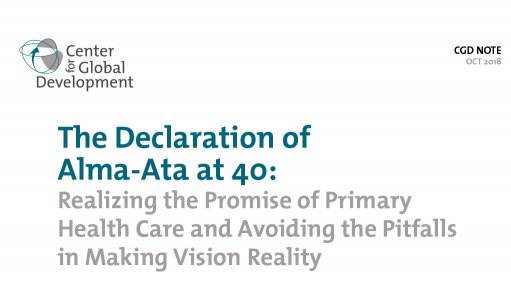
At the Global Conference on Primary Health Care (PHC) in Astana on October 25–26, 2018, world leaders will redouble their commitment to PHC as a cornerstone of universal health coverage (UHC). The event marks the 40th anniversary of the Declaration of Alma-Ata, which enshrined health as a basic human right and underscored the potential of equitable, high-quality PHC to deliver “health for all.”
There is a solid case for investing in PHC: strong PHC can, at least theoretically, meet up to 90 percent of a population’s health needs and, in turn, reduce waste from unnecessary care elsewhere in the system (Tollman et al. 2006). Moreover, investing in PHC is cost-effective and represents good value for money (Disease Control Priorities 3 2018).[2] Yet, in many low- and middle-income countries (LMICs), PHC remains under-prioritized, under-resourced, and under-utilized.
The renewed global commitment to PHC is an opportune time to distill lessons learned and identify key challenges from the past 40 years. Even more importantly, it is an opportunity to acknowledge the work that remains to be done to make vision reality.
Report by the Centre for Global Development